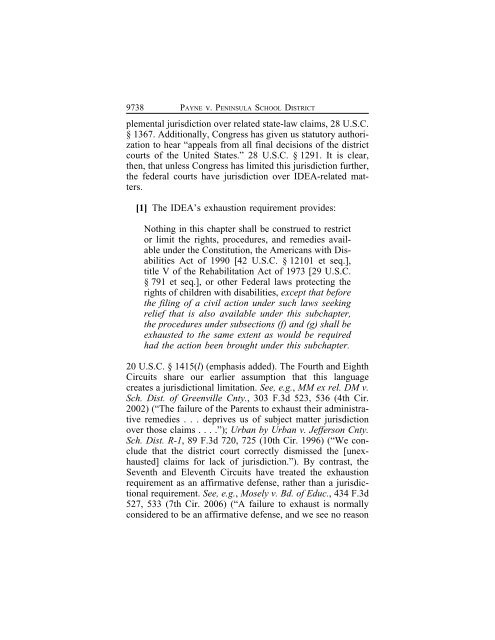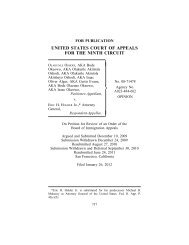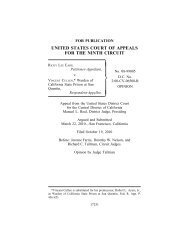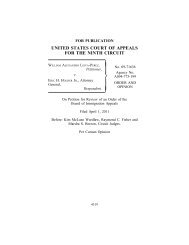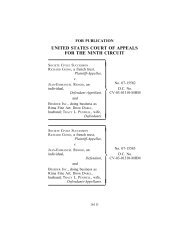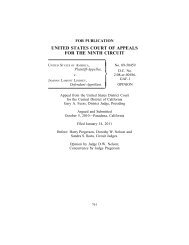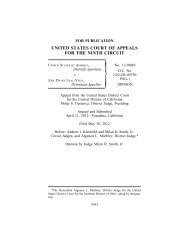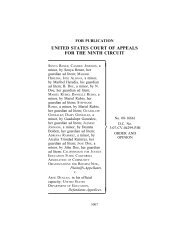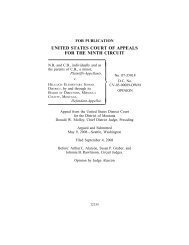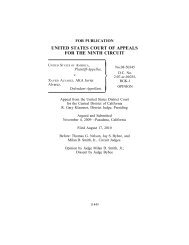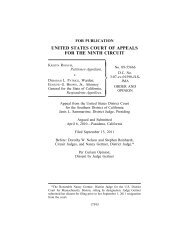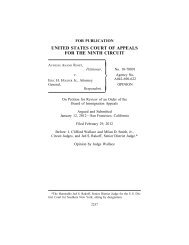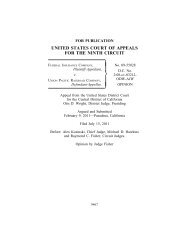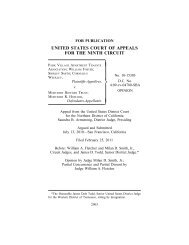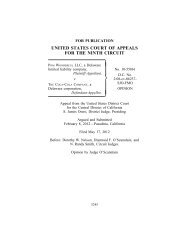UNITED STATES COURT OF APPEALS FOR THE NINTH CIRCUIT
UNITED STATES COURT OF APPEALS FOR THE NINTH CIRCUIT
UNITED STATES COURT OF APPEALS FOR THE NINTH CIRCUIT
You also want an ePaper? Increase the reach of your titles
YUMPU automatically turns print PDFs into web optimized ePapers that Google loves.
9738 PAYNE v. PENINSULA SCHOOL DISTRICT<br />
plemental jurisdiction over related state-law claims, 28 U.S.C.<br />
§ 1367. Additionally, Congress has given us statutory authorization<br />
to hear “appeals from all final decisions of the district<br />
courts of the United States.” 28 U.S.C. § 1291. It is clear,<br />
then, that unless Congress has limited this jurisdiction further,<br />
the federal courts have jurisdiction over IDEA-related matters.<br />
[1] The IDEA’s exhaustion requirement provides:<br />
Nothing in this chapter shall be construed to restrict<br />
or limit the rights, procedures, and remedies available<br />
under the Constitution, the Americans with Disabilities<br />
Act of 1990 [42 U.S.C. § 12101 et seq.],<br />
title V of the Rehabilitation Act of 1973 [29 U.S.C.<br />
§ 791 et seq.], or other Federal laws protecting the<br />
rights of children with disabilities, except that before<br />
the filing of a civil action under such laws seeking<br />
relief that is also available under this subchapter,<br />
the procedures under subsections (f) and (g) shall be<br />
exhausted to the same extent as would be required<br />
had the action been brought under this subchapter.<br />
20 U.S.C. § 1415(l) (emphasis added). The Fourth and Eighth<br />
Circuits share our earlier assumption that this language<br />
creates a jurisdictional limitation. See, e.g., MM ex rel. DM v.<br />
Sch. Dist. of Greenville Cnty., 303 F.3d 523, 536 (4th Cir.<br />
2002) (“The failure of the Parents to exhaust their administrative<br />
remedies . . . deprives us of subject matter jurisdiction<br />
over those claims . . . .”); Urban by Urban v. Jefferson Cnty.<br />
Sch. Dist. R-1, 89 F.3d 720, 725 (10th Cir. 1996) (“We conclude<br />
that the district court correctly dismissed the [unexhausted]<br />
claims for lack of jurisdiction.”). By contrast, the<br />
Seventh and Eleventh Circuits have treated the exhaustion<br />
requirement as an affirmative defense, rather than a jurisdictional<br />
requirement. See, e.g., Mosely v. Bd. of Educ., 434 F.3d<br />
527, 533 (7th Cir. 2006) (“A failure to exhaust is normally<br />
considered to be an affirmative defense, and we see no reason


